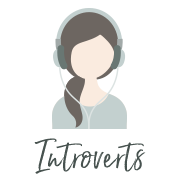8 Ways to Stay Focused + Stop Procrastinating
/Staying focused is one of the hardest parts of running your own business. Most days my mind is all over the place, from thinking of social posts for a client to redesigning my own website...to "why is my cat throwing up on everything I love?"
So while this is still a work-in-progress for me, I wanted to share what has worked in the past and what I'll be trying again.
8 Ways to Stay Focused & Stop Procrastinating in Your Business
Use a Timer
If I find myself procrastinating on a specific project, I tell myself I only have to work on it for 10 minutes. Then I set a timer and get to work.
I either get into the groove and work on it longer, or get some work done in that 10 minutes and come back to it later. Most times it's the former. For some reason, just starting the task is the hardest part.
There are specific techniques you can use if you want to get fancy. I've tested the Pomodoro technique for time management after reading Holly's post on balancing work and blogging. But I've also used the basic E.ggtimer.
Batch Similar Tasks
You've probably heard by now that responding to email and checking social media all throughout the day is hurting your productivity.
I've heard this a million times and am still guilty of doing both, but when I DO batch similar tasks together, I get more done.
Think about everything you have to do in a given week, or even just a day, and separate the tasks into similar groups. Designate a few specific times throughout the day where you'll respond to emails, check your phone, and check social media.
If you're a health coach or life coach, lump all of your coaching sessions for the day together, if possible.
Establish a Routine
This is actually one of the hardest ones for me. I have some kind of natural inclination to hate routines, but yet I know how effective they are.
Establishing a routine helps your body and mind get into a groove. It also helps you focus on the task at hand because your day is already planned out.
Make sure to include regular self-care and exercise into your routine. If you make it a habit, you'll see better results overall.
I started writing a paragraph with "My loose routine includes..." but it just made me realize how bad of a job I'm doing lately. The past few weeks I wake up anywhere from 6-8am, get coffee, write for an hour or so if I don't get sidetracked by an email, look at my phone approximately 578 times, dig into client work for about 6 hours, then either drive an hour to Crossfit or continue working until I realize it's 9pm. Somewhere in there I remember to eat. SO, you can see I have a lot to work on myself! I've gone through periods of great discipline and focus, but we all go through these days/weeks/seasons. I promise you.
Keep Your Blood Flowing
Exercise is so important to staying focused. It keeps blood flowing and releases neurotrasmitters that help increase cognitive function.
Schedule in breaks to stretch throughout the day, as well as trying to establish a workout routine. This doesn't mean you have to do the same workout every day, or commit yourself to a specific program like I did. Just setting up any exercise routine will help.
It could be a long walk around your neighborhood or trying different classes at your local gym. Whatever keeps you interested and keeps your blood pumping.
Remove Distractions
Sometimes blocking out time for tasks isn't enough. You may need to close all open browser tabs, remove your cell phone from your office or install an app that blocks social media channels.
There was a point when I was experimenting with the Pomodoro technique mentioned above, but I still had my phone in my office. While the timer was running I didn't check my phone, but hearing it buzz or light up was still distracting and caused a lot of anxiety knowing I had to wait to look at it. When I completely removed it from sight, it was much easier to forget about.
Read Less
While I recommend reading and engaging with other bloggers, sometimes it can be distracting from doing your actual work.
Try limiting the number of blogs you read per week or limiting the amount of time you spend reading them. For example, set aside 30 minutes every morning to scroll through your RSS feed and only click on the posts that grab your attention the most. Then mark all as read and move on with your day.
It's true that I get a lot of ideas from reading other blog posts but some of that time would be better spent implementing the things I learned or ideas that were sparked. Most of us spend so much time consuming information and too little time implementing our ideas.
Prioritize Your Tasks
“Remember that if you don’t prioritize your life someone else will.” -Greg McKeown, Essentialism: The Disciplined Pursuit of Less
Get organized in the morning (or the night before). Plan out what you need to do that day.
One of my favorite questions is, "What 3 things can I do today that will have the biggest impact on my overall goals?"
Then I also do a brain dump of all my other ideas so I don't lose them. Having everything visually laid out helps me prioritize and gives me more time to think about the smaller ideas. They're still written down, but I have more time to process how much impact they'll really have. Don't just use the brain dump area when you're planning; use it throughout the day as you accomplish your listed tasks, then re-address the ideas later.
One thing I cannot recommend enough is to do the hardest or "worst" task first thing in the morning so it's not zapping your energy and hanging over your head all day.
Below you'll find a simple daily planner I've designed to help you stay organized in the easiest way possible.
Reflect
Lastly, pause and think about why you're procrastinating on that particular task. If it's taking up too much time (even just mental energy to avoid it), it might be time to outsource it or eliminate it completely.
Is there a deeper reason you're avoiding it? Does your gut tell you it's not the right thing to do? I love this post on how procrastination can be productive.








